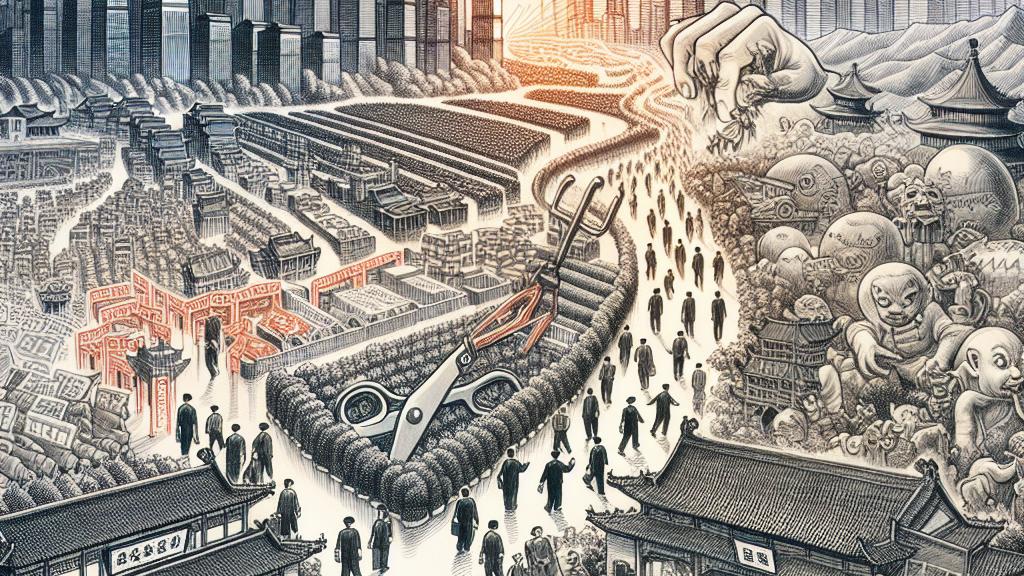Learning from China's Economic Reforms
Overview
- Discover the pivotal economic changes that reshaped China.
- Gain insights into how these lessons can apply to U.S. political reform.
- Examine the influential roles of leaders like Deng Xiaoping and Zhu Rongji.

Historical Context of China's Reforms
In the late 20th century, China underwent a remarkable transformation, led by the visionary Deng Xiaoping. Initiated in the late 1970s, Deng's reforms shifted China from a strict, planned economy to a more market-oriented model. This shift opened doors for foreign investment and gave rise to special economic zones, such as Shenzhen, which became a bustling hub of activity nearly overnight. The changes allowed for innovation and entrepreneurship to flourish, effectively pulling hundreds of millions out of poverty and revitalizing an economy that had been stagnant. It was a move comparable to a daring leap—Musk and Ramaswamy hope to enact in the U.S.—where they aim to trim bureaucracy and encourage a more agile government.
Key Figures and Strategies
Building on Deng's foundational reforms, Zhu Rongji, who served as Premier, took aggressive steps to deepen the nation's economic restructuring. Zhu slashed the number of central government agencies from 86 to 59 and reduced the workforce, cutting government jobs by 20%. This was not just about numbers—it was a bold statement of intent. His commitment to privatization saw state-owned enterprises transition into competitive private companies, providing new opportunities for former state workers. A notable example is the closure and subsequent privatization of numerous factories, which led many into innovative new sectors. For Musk and Ramaswamy, Zhu's tenacity and the positive outcomes of his reforms offer crucial strategies for navigating their own legislative challenges in a landscape often resistant to change.
Lessons for Today
The transformative journey of China's reformers yields powerful lessons for the present. The fundamental changes initiated by Deng and Zhu illustrate that, although daunting, large-scale reforms can create unprecedented success and prosperity. As Musk and Ramaswamy consider their ambitions for American governance, they can draw inspiration from these leaders by gradually rolling out reforms that positively impact citizens’ lives while remaining sensitive to workforce transitions. Engaging storytelling that highlights individual experiences and those affected by these reforms can resonate deeply with the public, making policy changes feel personal and relatable. Ultimately, a thorough understanding of historical precedents may equip Musk and Ramaswamy with the insight needed to foster impactful, meaningful change in their pursuit to reshape the future of American governance.

Loading...